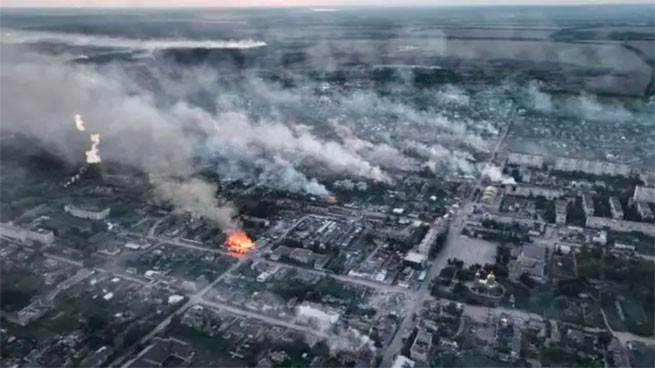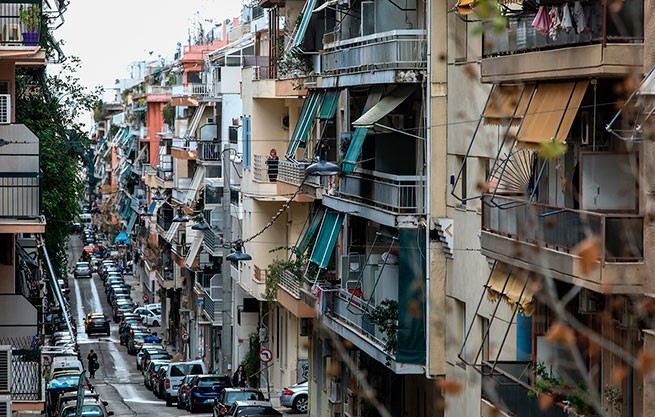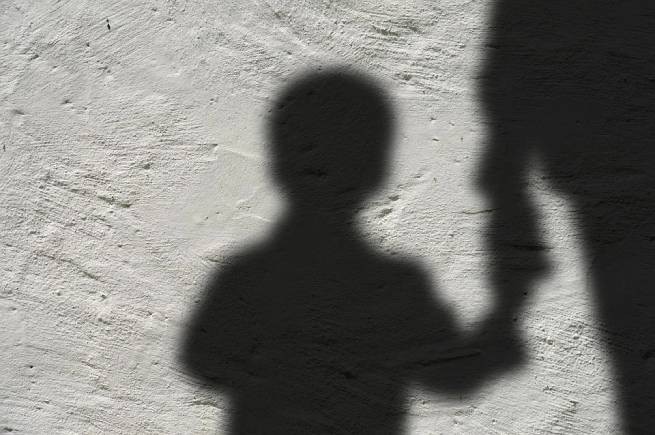War is not only the killed and wounded, blood and pain, loss of housing. Very often it is something more – loss of morale, meaning in life, self-confidence. And it is also suffering and deep psychological trauma, the consequences of which sometimes remain for life, and… a sense of guilt. We are talking about rape.
Men are increasingly becoming victims. A quarter of a century ago, Serbs used sexual violence against Albanian men. BBC Russian leads in the words of one of them:
“I still feel like a crippled person.”
There is no statute of limitations for such crimes. Just recently, Kosovo police arrested a Serb man – he is charged with crimes committed 25 years ago. Alban (name changed for ethical reasons) is an ethnic Albanian. For almost two decades, he thought he was the only man to survive sexual violence during the Kosovo war in the 1990s. It is understandable – Women who have been abused often prefer to hide the fact, and when it comes to men…
Alban, now in his 40s, realized he was not alone after the law came into force that provides for additional assistance to rape survivors.
He was 17 when his family had to flee their village in Kosovo and hide wherever they could. Food was scarce, and one day Alban went back home to get a sack of wheat. In the garden he was stopped by a group of people in Serbian police uniforms, who pushed him into the house. The man recalls:
“At first I didn't understand what was happening. I felt pain and thought they were stabbing me in the back. Then I realized they had stripped me naked and were doing the most horrible thing to me. I lost consciousness.”
Even now, the man's voice trembles at the memory. His feelings are understood better than anyone by Driton (name changed), although they have never met. Driton is now over 60, and for many years he kept the same secret. He was raped multiple times and in 1999 he survived a gang rape.
It happened after he was held for 30 days in a prison in Kosovo that he believes was run by a Serbian paramilitary group. He suspected that similar things could have happened to other men, but he could only tell his wife – no one else could he trust with his painful secret.
The 1998-99 Balkan war that erupted after the breakup of Yugoslavia left an estimated 130,000 people dead. An estimated 10,000-20,000 were raped in Kosovo alone.
Kosovo sought independence, and Serbia responded with brutal repression against the ethnic Albanian population. This resulted in large-scale armed clashes, and both sides were later accused of committing atrocities, including the rape of civilians.
Twenty years later, in 2018, the Kosovo government adopted a law that gave people who had been sexually assaulted official status as war victims and the right to financial assistance. And only then did this tragic page of bygone days begin to open.
The law helped Alban and Driton break nearly two decades of silence and one of the last taboos of the war. Two thousand Kosovars, men and women, came out of the shadows to seek official recognition as war victims. So far, 1,600 people, including 84 men, have received this status. The deadline for applications was originally set to end in February 2023, but authorities have extended it to May 2025.
Alban still lives in the modest family home where he was born and where he suffered the abuse. He says, “It's terrible, but I never had the chance to move.” The hallway where the rape took place connects the small kitchen, bathroom and bedrooms. Today, Alban lives in the house with his wife and children. And none of them suspects what happened to their husband and father in this house. The man says:
“I don't want them to know because even today there are times when I wish I didn't exist. They killed my morale and sometimes I still worry about whether I'm man enough – it's a heavy burden.”
Over the years, Alban spoke about what happened only once: a few days after the rape, he confessed to his father:
“He was shocked, but he was glad I was alive. He said they could have killed me.”
He remembers what happened, and tears are streaming down his face – the pain is still too palpable. Driton also initially wanted to tell his father about what happened, but changed his mind:
“My father was already old and ill, I was afraid that my story would kill him. But he noticed that something was wrong and said that I was probably hiding something.”
Finally, at some point, unable to bear this psychological pressure, he told his wife. Holding his face with both hands, he says:
“She accepted it. It wasn't my fault what happened to me.”
Human Rights Watch calls rape during the Balkan war “an instrument of systematic ethnic cleansing” initiated by the regime of former Serbian President Slobodan Milosevic. For years, the topic of sexualized violence was taboo among Kosovar women, too, says Feride Rushiti, a medic and human rights activist. She began documenting rape cases during the war, when she worked in a refugee camp in northern Albania, where many Kosovars were arriving at the time. Rushiti says:
“People thought in stereotypes: men forbade women from speaking publicly about what happened because it would mean they couldn't protect them.”
After the conflict ended, she founded the Kosovo Rehabilitation Centre for Victims of Torture (KRCT), a non-governmental organisation that provides psychological and legal support for survivors of violence. At first, the institution's visitors were only women, but since 2014, when the law on recognizing victims of violence was first discussed in the Kosovo parliament, men have also started to seek support. Feride Rushiti says:
“Traditionally, men are expected to protect the family, not play the victim.”
NGOs like KRCT help verify victims’ stories so that they can then receive state benefits of around 230 euros a month – around a third of the average salary in Kosovo. Alban learned about the new law from the news. But he admits that the decision to end twenty years of silence was difficult. He was only able to contact the centre on his third attempt – the first two had left him with palpitations and trembling, and each time he retreated. In the spring of 2019, he finally pulled himself together. Driton was equally stressed at the thought of telling his story:
“I really wanted to tell someone, but I knew I had nowhere to go, so when I finally did, I felt a huge sense of relief.”
Both men had taken antidepressants and anti-anxiety medications prescribed by doctors after the war to cope with nightmares, rapid heartbeats and mood swings. It was only after contacting KRCT that they received psychological support that helped them get to the root of the problem. Alban recalls:
“They told me it wasn't my fault because I was a defenseless civilian, and the fault lay with the criminals who did this to me.”
Driton admits that he had long wanted to open up to someone, but did not know where to go:
“I still feel like a damaged person, but after talking about what happened, I started to cope a little better.”
He often wonders if similar things could be happening elsewhere, especially when he watches the news about events in Ukraine, Israel and Gaza. And he says, addressing the victims of violence:
“My advice to everyone [с кем это может произойти] – Go and tell about it. There is no shame in it, it needs to be talked about.”
In addition to helping victims, KRCT also collects evidence against rapists so that they can stand trial. The problem is that although victims are willing to testify in court, they do not know the identity of the perpetrators. The center's psychologist, Selvi Izeti, says:
“We rarely get their names or physical descriptions because these people were wearing masks when they committed the crimes.”
Only in 2021, a court sentenced police officer Zoran Vukotic, an ethnic Serb from Kosovo, to ten years in prison for raping women and participating in the persecution of Albanian civilians during the war. It was the first conviction in a case of sexualized violence during the 1998-1999 war and is being called historic in Kosovo.:
“He gave hope to other victims that their tormentors could be punished even years after they committed the crime.”
Other Balkan countries, such as Croatia and Bosnia and Herzegovina, have laws similar to Kosovo's, and the number of people officially recognized as war victims because of the violence they suffered there is growing every year.
In Serbia, the situation is different. The country does not include raped people among the civilian victims of war. And so far, there have been no Serbs willing to share their stories, who were also subjected to violence during the war.
Since the start of Russia's full-scale invasion of Ukraine, reports have emerged of sexualized violence by Russian troops. After a year of active hostilities, Ukrainian authorities have recorded hundreds of cases of violence committed against women, men, children and LGBT people. As the territories are deoccupied, more and more similar cases are becoming known…







More Stories
"High prices go through their cycle and, like the flu, they pass."- claims the fatalistic Greek Finance Ministry
Life after death: it is quite real
Cherkassy University Lecturer Fired Over Her Daughter's Criticism of the OCU